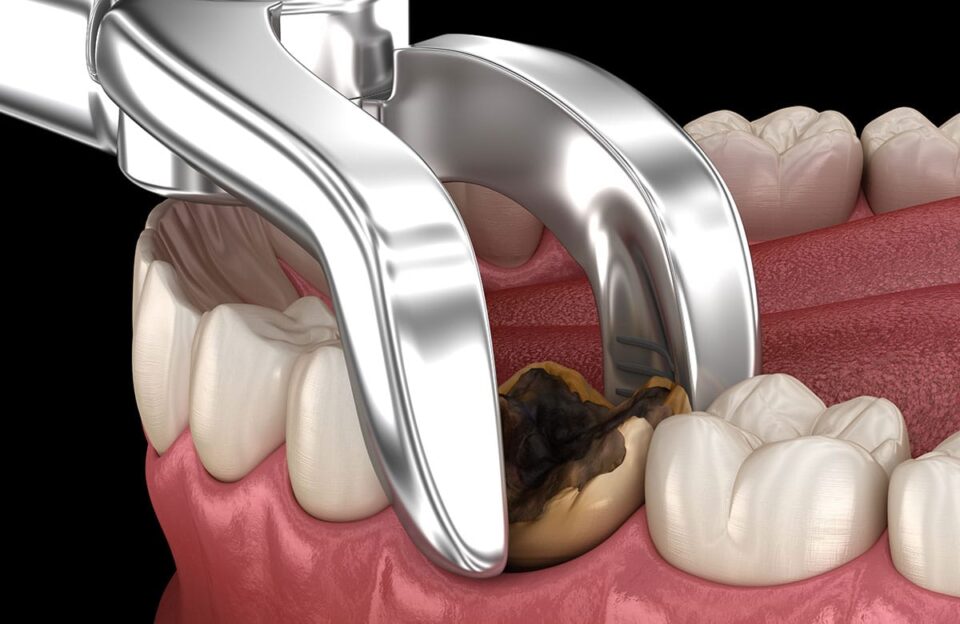Teeth that are broken or that have been worn down to the point of causing damage to your gums, jaw bones, and other teeth may need to be extracted by a dentist or oral surgeon. Here’s what to expect as you recover from tooth extraction healing stages at A-Dental Center.
Table of Contents
Before Tooth Extraction
The first few days after tooth extraction can be uncomfortable, but generally speaking it’s more of an inconvenience than a serious medical issue. During these first few days your mouth may be very tender and sensitive, so eating solid foods should be avoided for at least 24 hours. For example, soft foods like soup or broth are much easier on your mouth than a steak. If you have gum disease, it will take longer for your gums to heal following tooth extraction.
In fact, some people may require antibiotics following tooth extraction depending on their specific situation; usually antibiotics are only necessary if there is infection in surrounding tissue. But, again, most people do not need them. It’s also important to avoid rinsing with water during tooth extraction healing stages as doing so could result in damage that leads to dry socket (also known as alveolar osteitis). Dry socket occurs when blood clotting does not occur properly following tooth extraction resulting in a painful condition that requires treatment by a dentist. You don’t want that! So just follow doctor’s orders and avoid rinsing with water until instructed otherwise.
Day 1 After Tooth Extraction
The tooth extraction healing process varies from person to person, and your dentist or oral surgeon will provide you with specifics about what you can expect based on your individual case. In general, it’s normal for discomfort after a tooth extraction to last for two or three days, although if you have sensitive teeth or a low pain tolerance, it may be more uncomfortable. Aspirin and ibuprofen are good ways of reducing swelling and inflammation and may help relieve tooth extraction pain, but don’t take these drugs without first consulting your dentist. The most important thing is that you do not disturb any blood clots that form after surgery; pulling them apart could cause unnecessary bleeding. If you’re in too much pain to sleep comfortably, try taking an over-the-counter sleep aid such as Tylenol PM. Be sure to follow all instructions provided by your doctor.
Recovery Time
If your tooth has been removed via surgery, you’ll have some recovery time before your next visit. During that time, it’s important to keep your mouth clean by rinsing with a mixture of baking soda and warm water several times per day. Avoid using toothpaste; instead use saltwater mixed with baking soda, which will help prevent infection in your mouth while you recover. To ensure proper healing: 1) try not to bite on hard foods or chew gum; 2) don’t smoke, eat acidic food (like orange juice), or consume alcohol; 3) avoid eating starchy foods until after your stitches are removed—stick with broth and smooth soups instead; 4) use over-the-counter pain relievers if needed. It may take up to three weeks for your gums to heal completely following tooth extraction.
You should be able to resume normal activities within a week, but make sure you give yourself enough time to heal properly. Once healed, you can expect your teeth and gums to be sore for about two weeks following tooth extraction. Over-the-counter pain medications like ibuprofen can help ease discomfort during recovery. It is also important not to put too much pressure on your jaw during those first few days after tooth extraction as doing so could lead to complications such as dry sockets or even infections that require further treatment from a dentist. The best way is just rest and relax! You may experience some mild swelling in your face around where your tooth was extracted for about one week following surgery.
Post Op Instructions
The healing process for an extraction takes about a week. Here are some steps you can take to ensure it heals properly and quickly: • Rinse with warm salt water (1/2 teaspoon of salt in 8 ounces of water) every 2-3 hours while awake. • Gargle with warm salt water after each meal and snack. Be sure not to swallow any of it! • Cold sore remedies: Cold packs, ice packs, Tylenol or ibuprofen will help reduce swelling, pain and discomfort. • Avoid applying pressure on your extraction site as doing so could cause bleeding or bruising. You can apply heat by placing a washcloth or towel soaked in hot water against your cheek at least 2 times per day if needed.

